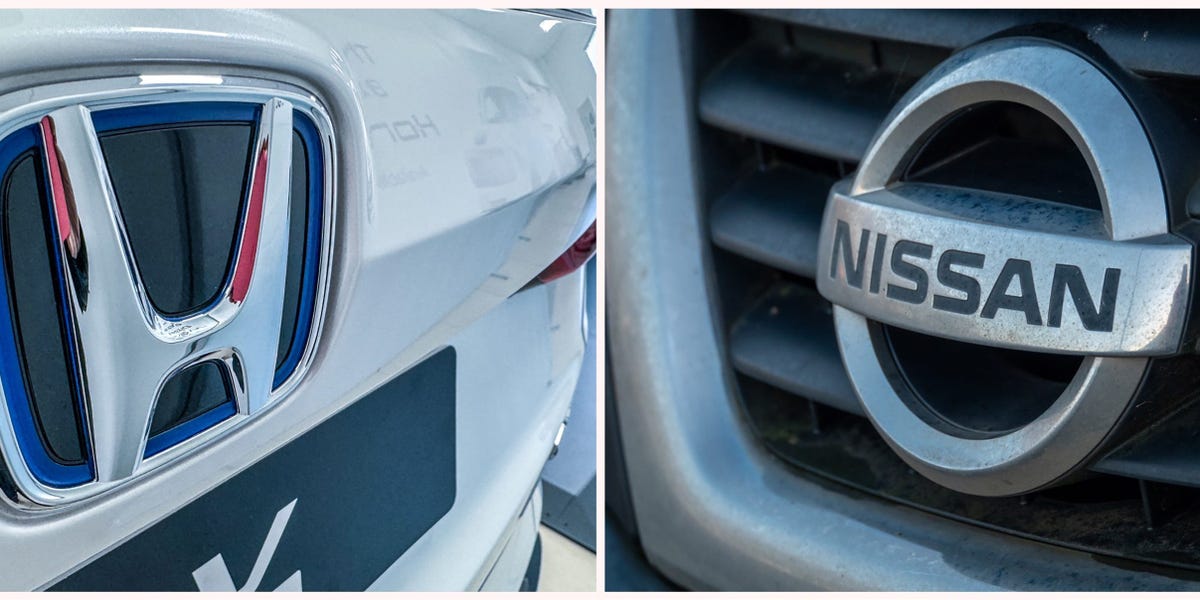
- Nissan and Honda have scrapped their proposed $50 billion merger.
- This merger would have established the third-largest automotive manufacturer globally.
- Both companies are confronting declining sales and a sluggish shift towards electric vehicles (EVs).
Nissan and Honda announced the cancellation of their planned $50 billion merger, which aimed to create one of the largest automotive entities worldwide.
On Thursday, the Japanese automotive giants revealed their decision to withdraw from the agreement first disclosed in December, citing the need to enhance decision-making speed and implement management strategies amid a “volatile” market environment.
The companies will continue to collaborate as part of a “strategic partnership.”
Nissan’s CEO, Makoto Uchida, indicated that Honda’s intent to turn Nissan into a subsidiary rather than maintaining a partnership significantly influenced the merger’s failure.
“Although our companies share a rich history, we were uncertain if this relationship would preserve our independence or enable us to showcase our full potential,” Uchida addressed the media during a press conference.
Following the merger’s collapse, both automakers released their earnings reports.
Honda experienced a 25% increase in pre-tax profit for the recent quarter, driven by robust sales in the United States and a thriving motorcycle division.
Despite this uptick, Honda is grappling with a significant downturn in China, where sales plummeted by nearly 40% over the past nine months, although its overall financial health appears stronger than Nissan’s.
Nissan’s earnings plummeted to 5.1 billion yen ($33 million) for the same nine-month period, a sharp drop from the 325 billion yen ($2.1 billion) it posted last year, with projections indicating an annual loss of 80 billion yen ($519 million).
Reuters
The lack of electric vehicle offerings has resulted in Nissan losing ground to local competitors in China, while its sales in the U.S. have also been hindered by a shortage of hybrid models and the inability of its electric vehicles to qualify for $7,500 tax incentives.
Nissan’s stock has declined by about 25% in the past year, with its market value now roughly a fifth of Honda’s, which has also seen a 15% drop in its share price during the same timeframe.
Uchida is now focused on executing a turnaround plan that includes the elimination of 9,000 jobs worldwide. He stated that all possibilities must be considered to ensure the storied manufacturer’s sustainability.
“Considering the company’s recent performance and the evolving landscape, it’s crucial to explore every avenue without reservation and undertake comprehensive structural reforms,” Uchida noted.
Nissan provided additional insights into its restructuring plans on Thursday, revealing intentions to reduce its workforce by 6,500 positions at its factories located in Tennessee, Mississippi, and Thailand.
The automaker also intends to decrease global vehicle production by 1 million to 4 million units in the fiscal year 2026.
Emerging Tariff Concerns
Both Nissan and Honda are now contending with the potential repercussions of U.S. tariffs on vehicles imported from Mexico and Canada, where both manufacturers maintain production facilities.
Uchida mentioned that Nissan might consider relocating manufacturing activities from Mexico to alternative regions if the tariffs are implemented, following the expiration of a temporary suspension in March.
Meanwhile, Honda’s vice president, Shinji Aoyama, emphasized the urgency for the manufacturer to export vehicles produced in Canada and Mexico to the U.S. before the waiver concludes.
The cancellation of their merger opens doors for Nissan to seek investment from other avenues. Reports indicate that Foxconn, a major Apple supplier, is contemplating purchasing the 36% stake in Nissan that is currently held by France’s Renault.
Additionally, private equity firm KKR is also rumored to be exploring investment opportunities in Nissan, according to Bloomberg.









